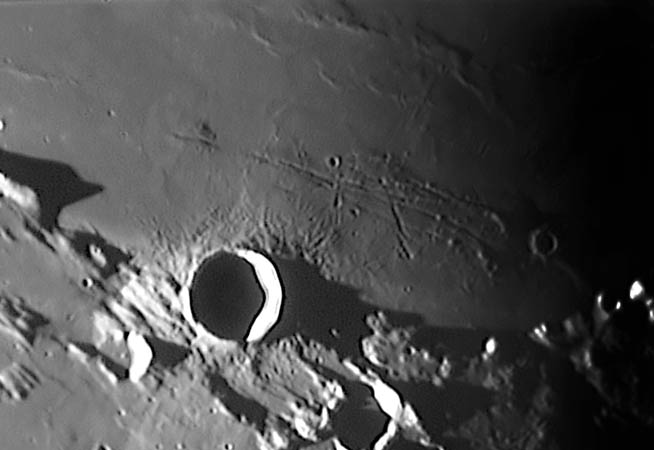Difference between revisions of "May 14, 2005"
| Line 11: | Line 11: | ||
onMouseOver = "document.images['main_image'].src='archive/2005/05/images/LPOD-2005-05-14b.jpeg'; return true" | onMouseOver = "document.images['main_image'].src='archive/2005/05/images/LPOD-2005-05-14b.jpeg'; return true" | ||
onMouseOut = "document.images['main_image'].src='archive/2005/05/images/LPOD-2005-05-14.jpeg'; return false" | onMouseOut = "document.images['main_image'].src='archive/2005/05/images/LPOD-2005-05-14.jpeg'; return false" | ||
| − | + | [[File:LPOD-2005-05-14.jpeg|LPOD-2005-05-14.jpeg]]] | |
</div></td> | </div></td> | ||
</tr> | </tr> | ||
| Line 23: | Line 23: | ||
<table class="story" border="0" bgcolor="#FFFFFF" width="90%" cellpadding="10" align="center"><tr><td> | <table class="story" border="0" bgcolor="#FFFFFF" width="90%" cellpadding="10" align="center"><tr><td> | ||
<p align="center"><b>Ancient Island</b></p> | <p align="center"><b>Ancient Island</b></p> | ||
| − | <p align="left">Lunar maria are great piles of basaltic lava that were emplaced over hundreds of millions of years as thousands to perhaps millions of individual flows. Later flows often completely buried earlier ones, but sometimes an island of a higher elevation of an earlier flow remains, surrounded by younger lavas. A wonderful example of such an ancient island - called a [ | + | <p align="left">Lunar maria are great piles of basaltic lava that were emplaced over hundreds of millions of years as thousands to perhaps millions of individual flows. Later flows often completely buried earlier ones, but sometimes an island of a higher elevation of an earlier flow remains, surrounded by younger lavas. A wonderful example of such an ancient island - called a [[July_28,_2004|kipuka]] - occurs just north of the crater [[September_7,_2004|Menelaus]] near the southern shore of Mare Serenitatis. The Menelaus Rilles occur along the crest of an elongated low ridge or bulge. This is the same family of ridges as the Plinius Rilles and the [[September_21,_2004|Littrow Rilles]] further east along the Serenitatis shore. I speculate that the lavas that overflowed from the rilles built the local high spots that preserved them. I strongly enhanced Zachs wonderful image to bring out the edges of the Menelaus Rille bulge. On the mouseover you can see where the bulge rises above the smoother later lavas to the east (right), along the north (top), and especially at the west end where the darker young lava curves around the older rise. A well-known dome occurs near the western end of the bulge and this image shows that the rilles make a Vee-shaped cut across it. Possible other lower domes can be imagined to the east along the bulge. Immediately east of the dome the bulge is embayed by younger lava - this appears to be where an impact crater dug into the older lava surface but was completely submerged by the younger lavas. |
</p> | </p> | ||
<blockquote><p align="right">— [mailto:tychocrater@yahoo.com Chuck Wood]</blockquote> | <blockquote><p align="right">— [mailto:tychocrater@yahoo.com Chuck Wood]</blockquote> | ||
| Line 44: | Line 44: | ||
[mailto:anthony@perseus.gr Anthony Ayiomamitis]</p> | [mailto:anthony@perseus.gr Anthony Ayiomamitis]</p> | ||
<p align="center" class="main_titles"><b>Contact Translator:</b><br> | <p align="center" class="main_titles"><b>Contact Translator:</b><br> | ||
| − | [mailto:pablolonnie@yahoo.com.mx | + | [mailto:pablolonnie@yahoo.com.mx Pablo Lonnie Pacheco Railey] (Es)<br> |
| − | [mailto:chlegrand@free.fr | + | [mailto:chlegrand@free.fr Christian Legrand] (Fr)</p> |
<p align="center" class="main_titles"><b>[mailto:webuser@observingthesky.org Contact Webmaster]</b></p> | <p align="center" class="main_titles"><b>[mailto:webuser@observingthesky.org Contact Webmaster]</b></p> | ||
<p align="center" class="main_titles"><b>A service of:</b><br> | <p align="center" class="main_titles"><b>A service of:</b><br> | ||
| − | [http://www.observingthesky.org/ | + | [http://www.observingthesky.org/ ObservingTheSky.Org]</p> |
<p align="center" class="main_titles"><b>Visit these other PODs:</b> <br> | <p align="center" class="main_titles"><b>Visit these other PODs:</b> <br> | ||
| − | [http://antwrp.gsfc.nasa.gov/apod/astropix.html | + | [http://antwrp.gsfc.nasa.gov/apod/astropix.html Astronomy] | [http://www.msss.com/ Mars] | [http://epod.usra.edu/ Earth]</p> |
</td></tr> | </td></tr> | ||
</table> | </table> | ||
Revision as of 15:33, 17 January 2015
Ancient Island
<nobr>Ancient Island</nobr> |
Image Credit: Zac Pujic
|
|
Ancient Island Lunar maria are great piles of basaltic lava that were emplaced over hundreds of millions of years as thousands to perhaps millions of individual flows. Later flows often completely buried earlier ones, but sometimes an island of a higher elevation of an earlier flow remains, surrounded by younger lavas. A wonderful example of such an ancient island - called a kipuka - occurs just north of the crater Menelaus near the southern shore of Mare Serenitatis. The Menelaus Rilles occur along the crest of an elongated low ridge or bulge. This is the same family of ridges as the Plinius Rilles and the Littrow Rilles further east along the Serenitatis shore. I speculate that the lavas that overflowed from the rilles built the local high spots that preserved them. I strongly enhanced Zachs wonderful image to bring out the edges of the Menelaus Rille bulge. On the mouseover you can see where the bulge rises above the smoother later lavas to the east (right), along the north (top), and especially at the west end where the darker young lava curves around the older rise. A well-known dome occurs near the western end of the bulge and this image shows that the rilles make a Vee-shaped cut across it. Possible other lower domes can be imagined to the east along the bulge. Immediately east of the dome the bulge is embayed by younger lava - this appears to be where an impact crater dug into the older lava surface but was completely submerged by the younger lavas. Technical Details: Related Links: Tomorrow's LPOD: Procellarum Twins |
|
Author & Editor: Technical Consultant: Contact Translator: A service of: |
COMMENTS?
Register, and click on the Discussion tab at the top of the page.




